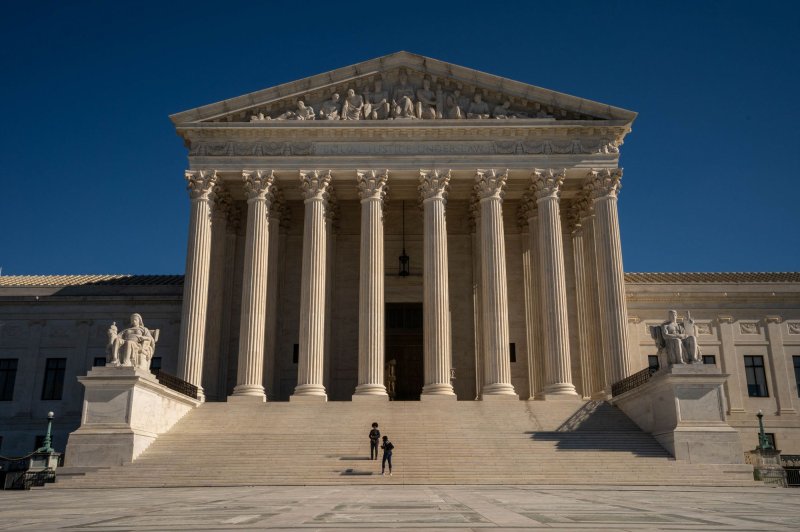The high court set aside a lower court ruling that backed California Gov. Gavin Newsom's COVID-19 restrictions on places of worship. File photo by Ken Cedeno/UPI |
License Photo
Dec. 3 (UPI) -- The U.S. Supreme Court on Thursday ruled against a pandemic-related order by California Gov. Gavin Newsom banning some indoor religious services, agreeing with critics that it is unconstitutional.
In a one-page order, the high court granted a petition from lawyers for Harvest Rock Church in Pasadena, Calif., seeking to set aside a lower court ruling upholding Newsom's ban.
The unsigned order instructed members of the U.S. Court of Appeals for the 9th Circuit to reconsider their opinion on the case in light of last week's Supreme Court ruling in a similar case, when it backed religious groups in challenging the state of New York's COVID-19 restrictions.
In latest the case, Harvest Rock Church sued the state of California in July after Newsom issued regulations under which churches in areas hit hardest by COVID-19 cannot hold indoor gatherings.
The case was filed by Mat Staver, an Orlando, Fla., attorney who is founder and chairman of Liberty Counsel, which litigates religious liberty cases.
It asks for a preliminary injunction barring the enforcement of the restrictions. After a federal judge denied the request, the case went to the 9th U.S. Circuit Court of Appeals, which also declined to issue an injunction.
In a 2-1 ruling on Oct. 1, the appellate court said the evidence does not support the argument that the orders give comparable secular activity more favorable treatment than religious activity, as alleged by the church.
While the churches contend they are being unfairly singled out while retail businesses are allowed to remain open under capacity restrictions, health experts say crowded, indoor church services provide an especially potent avenue for transmission of the disease, which is spread through the emission of infected droplets.
The Supreme Court, however, agreed with religious groups in New York in last week's case, finding that orders restricting their capacity violated worshippers' First Amendment rights because they were harsher than for secular facilities.
In the 5-4 decision, Justice Amy Coney Barrett, who joined the court last month, was the decisive vote siding with the conservative judges on the bench.















